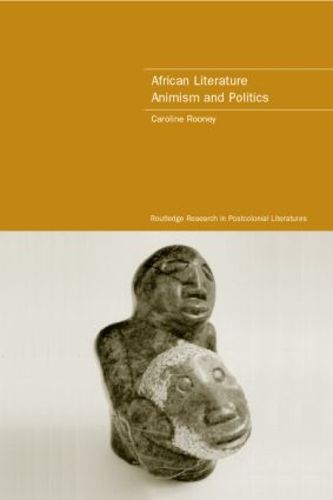Readings Newsletter
Become a Readings Member to make your shopping experience even easier.
Sign in or sign up for free!
You’re not far away from qualifying for FREE standard shipping within Australia
You’ve qualified for FREE standard shipping within Australia
The cart is loading…






This book considers ways in which inventions of Africa differ from inventions of the Orient. It identifies debates over the status of African thought as constituting one of the main preoccupations of a certain Africanist discourse. Here, Africa has been repeatedly construed as both unthinking and unthinkable. This book sets itself up against this tradition in re-addressing questions of animism, hybridity and fetishism, and in attending to a writing Africa, an Africa that invents itself. Whilst drawing on anthropology and African philosophy, Caroline Rooney uses readings of literary texts to interrogate conceptual suppositions that serve to eclipse the subject of Africa. This book marks an important contribution to colonial and postcolonial studies in its clarification of a certain Africanist discourse and its far-reaching analyses of a literature of animism. It will be of great interest to scholars in many fields including philosophy, anthropology, literary and critical theory, politics and psychoanalysis.
$9.00 standard shipping within Australia
FREE standard shipping within Australia for orders over $100.00
Express & International shipping calculated at checkout
This book considers ways in which inventions of Africa differ from inventions of the Orient. It identifies debates over the status of African thought as constituting one of the main preoccupations of a certain Africanist discourse. Here, Africa has been repeatedly construed as both unthinking and unthinkable. This book sets itself up against this tradition in re-addressing questions of animism, hybridity and fetishism, and in attending to a writing Africa, an Africa that invents itself. Whilst drawing on anthropology and African philosophy, Caroline Rooney uses readings of literary texts to interrogate conceptual suppositions that serve to eclipse the subject of Africa. This book marks an important contribution to colonial and postcolonial studies in its clarification of a certain Africanist discourse and its far-reaching analyses of a literature of animism. It will be of great interest to scholars in many fields including philosophy, anthropology, literary and critical theory, politics and psychoanalysis.